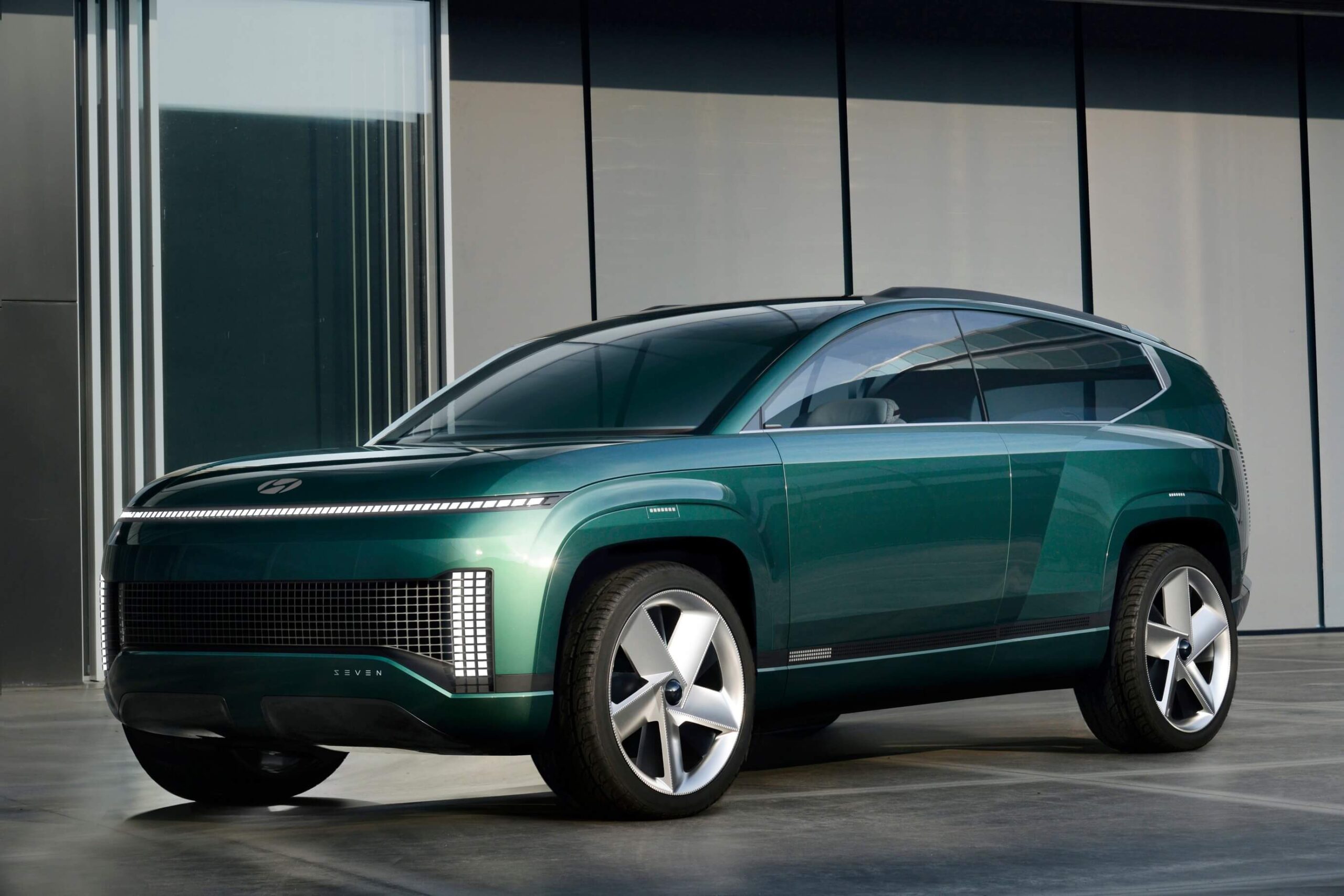Hyundai is kicking its electrification plans into higher gear by announcing a massive investment of KRW 95.5 trillion until 2030. It works out to approximately $16 billion at current exchange rates and will allow the South Korean automotive conglomerate to roll out no fewer than 17 BEVs in the eight years ahead.
The main goal is to boost annual sales of electric vehicles to 1.87 million units by 2030, which is a considerable jump compared to the previous target. Hyundai had established an objective to sell about 560,000 EVs by 2035. By the end of the decade, the company aims to capture 7% of the global electric car market share.
In a bid to achieve its lofty goal, 11 Hyundai-badged models will be launched alongside six luxury EVs from its premium Genesis sub-brand. The mainstream lineup will boast three sedans, six SUVs, a light commercial vehicle, and a “new type model.” Leading the way is the Ioniq 6 sedan coming later this year as a production version of the Prophecy concept. From 2024, the large Ioniq 7 SUV will follow as a road-going SEVEN concept.

As far as Genesis is concerned, it’s working on two passenger cars and four SUVs, including the already revealed Electrified GV70 due to hit the market later in 2022. From 2025, all the new Genesis models will be electrified to some extent.
In related news, Hyundai is announcing a new Integrated Modular Architecture (IMA) as an evolution of the current E-GMP platform. It’ll be inaugurated in 2025 for both regular models as well as “exclusive purpose-built vehicles” to cut costs and simplify production processes. Doing so will enable the IMA underpinnings to standardize the chassis, motor, and battery to maximize cost efficiency.
Meanwhile, work is underway for an over-the-air (OTA) update coming from late 2022 before being pushed throughout the whole lineup by 2025.
Source: Hyundai
